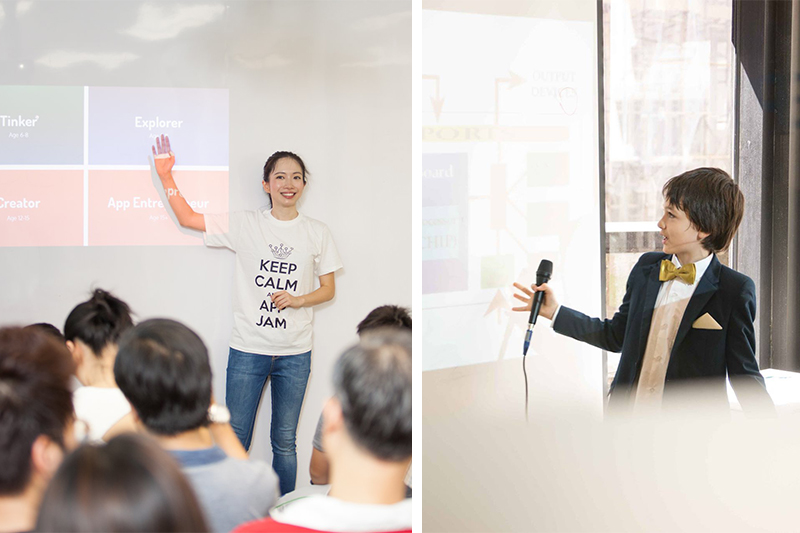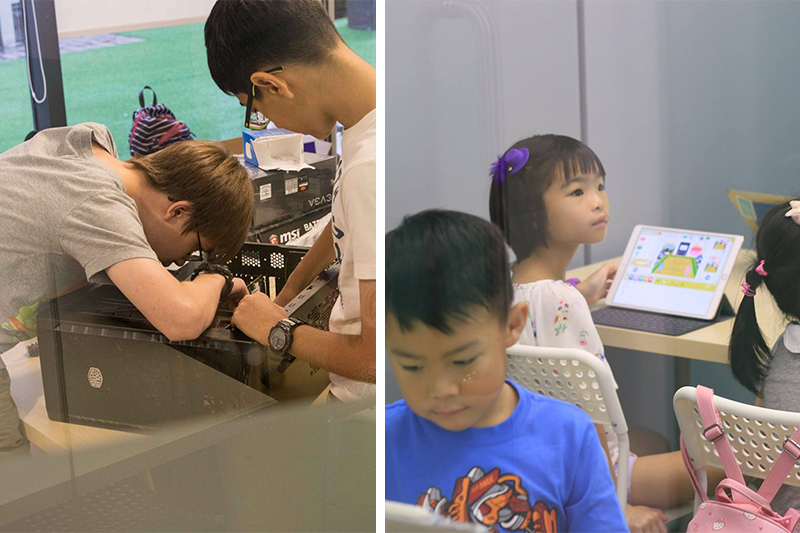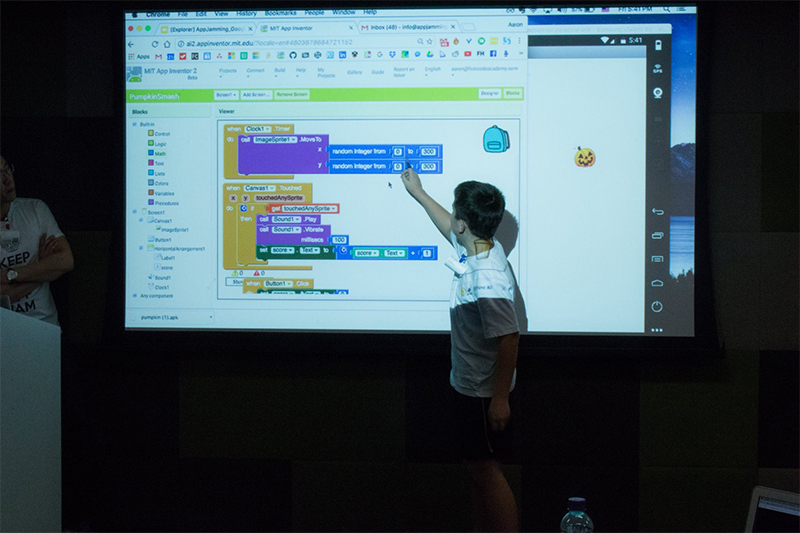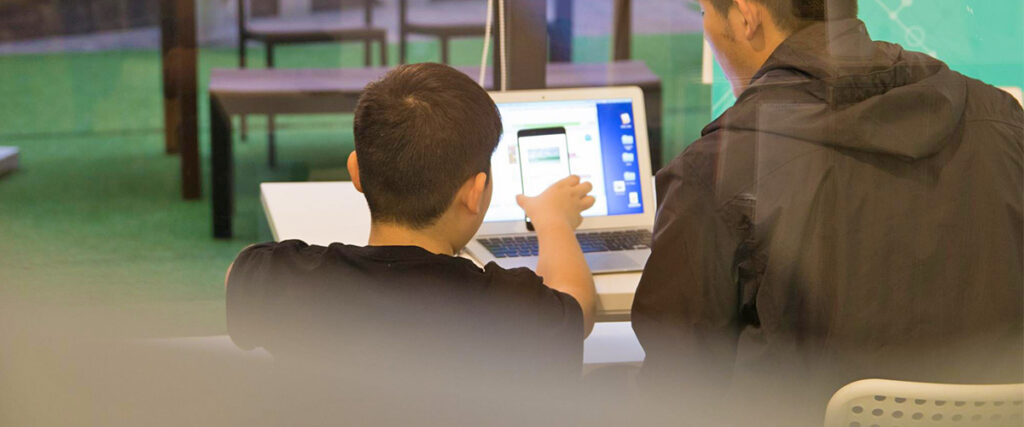Here, we talk to First Code Academy co-founder Kevon Cheung about his passion for technology and how, through his classes, students can hope to learn skills that translate beyond the bounds of tech.
For all the tech-lovers out there, First Code Academy is a must-know. Founded in July 2013, it is Hong Kong’s leading STEM education institution, providing tailored coding programs for kids aged between 4-18. This reputation is not undeserved, as the team has taught over 10,000 students across the Asia-Pacific region and now has six locations including Singapore, Macau, Taiwan, Shenzhen and Shanghai. We sat down with co-founder Kevon Cheung to find out how learning digital literacy and computational thinking skills can change a student’s outlook and discuss how teaching them to younger generations may change the future in technology.

Born and bred in Hong Kong, Kevon grew up with the emerging Internet. After asking his parents for a computer, he was instantly hooked, spending his time after school every day tinkering away rather than playing sport. “I was like, ‘oh, what does Internet Explorer do? Oh, I can use this to go visit websites?’ and that led to, ‘Oh, I can look at other people’s codes and use this to make a website!’” he laughs. It wasn’t long before Kevon started to teach himself coding, which he did mainly by studying the source codes of other websites, copying them, and then rewriting them. “That’s how you learn. You learn from people’s artwork,” he states.
It was at Babson College, Massachusetts that Kevon’s interest in entrepreneurship was sparked. Inspired by his peers, he knew that he, too, would one day start a business. However, he also knew he needed experience outside the classroom – and what better way than to actually start a small company? Whilst Sponfed, his first venture, a platform connecting brand owners with event organisers, never really took off the way First Code has, Kevon learnt a key lesson; “I got a taste of what failure feels like, and I’m really glad that happened.”

Not long after, Kevon met Michelle Sun. At the time, she had just finished her coding program in San Francisco, and with their shared passion, they quickly became friends. She told him something he would never forget; “If you know coding is the thing, it’s totally worth it. There’s no regret.” So, taking her advice, Kevon jumped on a plane and headed to New York for a coding bootcamp, and then made his way to Singapore to become a programmer. Some time later, the pair reconnected on Facebook. Michelle told him that First Code had been running for about a year in Hong Kong, and they were planning to expand to Singapore. Interested in the opportunity, Kevon dived in headfirst and never looked back. Considering Michelle the visionary and himself the operations guy, he credits their complementary skill sets with helping the company go from strength to strength. As he puts it, “Michelle is the person who upgrades the car, and I keep the car running.”
Three years and counting later, Kevon is still convinced of the benefits of teaching children to code – both in terms of them learning that specific skill and it helping them develop others, such as how to think logically and apply that train of thought to life. “When they create a new feature, they need to break things down and piece them together,” he explains. And, by analysing and deconstructing concepts, they learn problem solving skills. They are also taught presentation skills on Demo Day, where the children present their projects in front of 60-100 people in a process that can be very daunting even for seasoned adults. “This builds up their confidence,” Kevon elaborates, “so coding is not just about the classroom. It’s a lot more than that.”

Kevon hopes that, by inspiring the next generation and empowering them with the skills to become creative leaders, more kids might grow up to become programmers and pioneer the future of technology. As such, First Code commits deeply to the quality of their teachers, sending their teaching elites over to MIT to be certified as Master Trainers. And they continue to update their curriculum, recently branching out to include AI and VR alongside the fundamentals such as mobile apps and web programming. “We want students to stay up-to-date,” he explains. “From their standpoint, they don’t have to worry because they know First Code will take care of them.”
Beyond those skills, Kevon has even broader ambitions to introduce what he terms “the Silicon Valley mindset,” to the Asia-Pacific region. Going through local schooling in Hong Kong, he was put through the city’s infamously rigorous education system of memorising and regurgitating set answers. But, as Kevon later realised, ways of learning are changing. “It’s about being expressive. It’s about trial and error,” he states. “A lot of people don’t know this, but Silicon Valley is famous for being open to failures. They’re actually better than successes, because we learn more when we make mistakes.” This is why First Code consistently encourages students to try out new things. “What’s the worst thing that can happen if you mess up one line of code? The computer won’t explode, right?” Kevon chuckles.
Determined to keep pushing the agenda forward, Kevon has helped his students broaden their outlook, taking some to Shanghai for the Techcrunch Teen Hackathon Challenge in 2017 and running events like the AppJamming Summit since 2014, an app competition where students all across Asia are free to participate. “Kids will be seeing each other and say ‘wow, they’re amazing, how can I be like them?’” Building these sorts of life-changing experiences into courses that teach real skills is at the heart of First Code’s mission. They’re forging the future in more ways than one.
Related Articles
The Man Behind Japan’s First Coding Bootcamp Le Wagon




